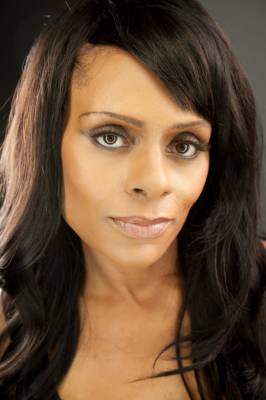Mahogany Keys: The Complex Image of the African American Woman part 2
Interview with Imani Wisdom
Author, Entrepreneur, Blogger
Imani Wisdom has been writing since the tender age of eight as a young lyricist. Later her love for words blossomed to short stories and to what she loves doing to this date, storytelling. Born to a public school teacher and a manufacturer for the local paper, Imani is the mother to two adult sons and a teenage daughter. At 41, she understands making her way in the literary world will have its obstacles. Yet she’s willing to give her all.
“So far, I was living the perfect life, and it felt so good and peaceful to live in a remote area on the outskirts of town. Suddenly, in 2006, Tulla Springs drastically changed its color landscape. Once it was primarily a white area where we ran all the city offices, school boards, and businesses, but now the town is full of Coloreds. There’s a colored sheriff, deputy mayor, school superintendent. There are even a few so-called black-owned businesses. I mean, the whole thing made me sick! Why I remembered years ago before that Civil Rights Movement, Coloreds knew how to stay in their place. It was simple. They kept to themselves and we whites kept to ours.”
(Excerpt from Zion’s Road by Imani Wisdom)
Oana: What is the importance of the family in your life?
Imani: As a single parent to two boys and a girl, I didn’t realize until a few years ago what family meant to me. So much so it’s the reason why I get up every morning to pursue my dream as a published author – and yet it’s more than showing my children of pursuing a dream but proving if you put your mind to something anything can happen.
My kids and I live on the Westside of the city of Indianapolis where there is widespread poverty coupled with high-crime. However, I instilled three things in them: Believe in yourself, never settle for mediocrity, and if something doesn’t feel right, most likely it isn’t – use your gut instinct.
So I consider my family as life’s precious gift. I want to do all I can see to my dreams come true to the point of creating a legacy. That will be my gift to them.
Oana: Would you say that the fact that you are an African American woman made a difference in the way you were treated throughout your life (school, workplace)?
Imani: That’s a great question. I’ve been raised by an incredible woman who was strong and intelligent. She taught my younger sister and me that women were just as capable to do anything that men could do. She had proven that by coaching the girls’ basketball team for Shortridge High School in Indianapolis in the mid-1970’s. I remembered the stories she told about how the boys’ basketball coach treated her because she was a woman (it wasn’t because of her skin color because, he, too, was an African American). To make a long story short, she became the first coach in the school’s history to win City’s Sectional – and still to hold the honor to this date.
As for me I haven’t experience racial discrimination in the workplace or school. However, I have been discriminated because of my sex. It hadn’t affected my work or school performance. I just use that frustration to work harder and achieve every opportunity I get.
Oana: Have you had extremely negative experiences involving racism and how did they affect you?
Imani: When I was in grade school, my old school that was located close to my home had been closed due to educational cuts. So, the school system shipped the students to a school in a mostly white neighborhood. I have to say, I have never heard the word nigger being used as many times as I did – and that was first day of school.
One day during summer school while waiting for my mother to pick me up, a white student approached asking me point blank: “Are you a nigger?” At that moment, I pretended his ignorance didn’t faze me but he kept asking that same question. So, I shared with him the truth. “If you had any sense” I told him. “You would know the real definition of what nigger is. And from where I’m standing, the only ignorant fool I see is you”.
Well, I can safely say the boy wasn’t a happy camper. He turned red but didn’t say another word and went home. At that time I found the entire thing amusing. Then years later I thought of that boy and realized he learned hate from the people he trusted. It wasn’t his fault; he only knew what he was taught. That could by why I wrote my fist novelette, Zion’s Road. The story is not so much about passing hatred to your children but passing self-destructive behavior.
Oana: Have you ever felt that your ideals and goals have been put on hold because society has assigned you a different task or even punishment?
Imani: The only thing I may have put on hold because I feared of what society thinks is my latest books, Zion’s Road and the spin-off novel. I wrote those stories almost seven years ago, and left it in my hard drive because I didn’t know how to market the stories, or how the public would take the storylines. The stories are intense and emotionally charging filled with racial epithets. I didn’t write it to shock the readers but to make an honest perception of what racism can do to the people we love.
Oana: Do you believe in God? What do you think about the fact that black people and white people rarely meet in churches when we are told we are all “children of God”?
Imani: I wholeheartedly believe in God but I am not religious. The word “religion” has been twisted and turned into a political weapon. Rather - I consider myself as “spiritual.” Although I’ve been raised as a Christian, I call myself a student of life because I want to learn all forms of “religion.” People are going to fear of what they don’t understand – religious intolerance is not any different from racial intolerance.
As for black and white people segregating themselves to worship in the name of the Lord, it’s unfortunately true. – And yet it’s been going on since before the Civil War. African American Slaves weren’t allowed to worship in white churches, so they had to congregate and created their own places to worship. I won’t say it is racism, but an inherited habit that has been passed by generations. Will it ever change? I wish I had an answer to give you. But what I can tell is that I’ve been to church services which color was not an issue – there were blacks, white, and other races worshipping under one roof. Honestly, in my opinion, it does not make a different where you worship, just as long as you worship.
Oana: Do you believe that African American women’s rights should be part of a general greater movement that would include women of all races and ethnicities or they should be addressed separately?
Imani: I would love to see that – and it should be a part of the general conversation in the women’s rights movement, but unfortunately many issues involving African American women are not being addressed, such as the high rate of HIV. Sometimes we had to address our needs separately because it doesn’t fall into the mainstream media. There’s not anything racial about this, but a harsh reality.
Oana: Many African American woman follow fashion trends which sometimes triggers a very negative response in the black community. Do you think that a hairstyle can change who one is?
Imani: Absolutely not! What bugs in the black community is this so-called “natural hair and relaxed hair” debate. Hair is hair, in my opinion. I’ve read scathing comment posts on the internet between women who chooses to wear their hair a certain way. My daughter and I both wear our natural, but we wear it according to our styles. She wears her as an afro or in braids – and I wear mine in braids, wigs, weaves, or ironed-out. If I choose to go back wearing a relaxer, then it’ll be my choice. After all, there’s this thing called, freedom of choice!
Oana: What are the most sensitive issues the African American woman encounters frequently and that are invisible to the white people’s eyes? What should we be more aware of?
Imani: I can’t say right off hand of what it is. The only thing I will say is not all Black women are angry and confrontational. The same thing can be said for other races and ethnicities. We have dreams. We cry. We love hard, and for some, hurt easily. We are mother, sisters, aunts, and someone’s best friend. Our needs are universal and not from one race but the human race.
Oana: What is the significance of the African American woman’s work in today’s society?
Imani: I’m not sure how to answer that question, but what I will say the work by African American women, whether it’s in arts, education, or politics, has been a vast part of society. From Mae Jemison, the first African American woman astronaut, to the first African American woman as America’s Secretary of State, Condoleezza Rice, there’s not a place in society where the imprint of Black women cannot be felt.
Oana: What is your advice for the young generation of African American women?
Imani: What I would tell young African American women is that if you have dream - go after it. Your past mistakes are really just that – the past. Whether if you’re black, white, brown, or yellow, we tend to let our past define of whom we are, and also feel that we less deserve to go after our heart’s desire.
I had that type of mentality – and it held me back from seeing my true self. I also had no motivation, drive, or believed in my possibilities. It had taken a near-death experience to wake up from the madness. Hence, among the realization, Zion’s Road was born.
So, it’s true about one door closing in your life in order for another to open. I had to shut that door because of the old protruding baggage peeked from the doorframe. It’s like if you stick too much one closet, it won’t close or it’ll be hard to close. That is the same for life – too much baggage will keep you from moving forward.
So, the best advice I can give to an African American woman, or any woman, is before you set out to pursue any goals or dreams, be sure to dump the old, worn baggage. It’s like the 300-pound gorilla; it will be there until you have no choice to take notice.
Oana: Thank you, Imani.
Follow Imani on Twitter: @imani_wisdom
Like her on Facebook: www.facebook.com/imaniwisdom
Find out more about her at: www.PinkNoire.com and www.ImaniWisdom.com
Visit Author Oana’s website at: www.thehealings.net
© 2013 by Oana
When you subscribe to the blog, we will send you an e-mail when there are new updates on the site so you wouldn't miss them.



Comments